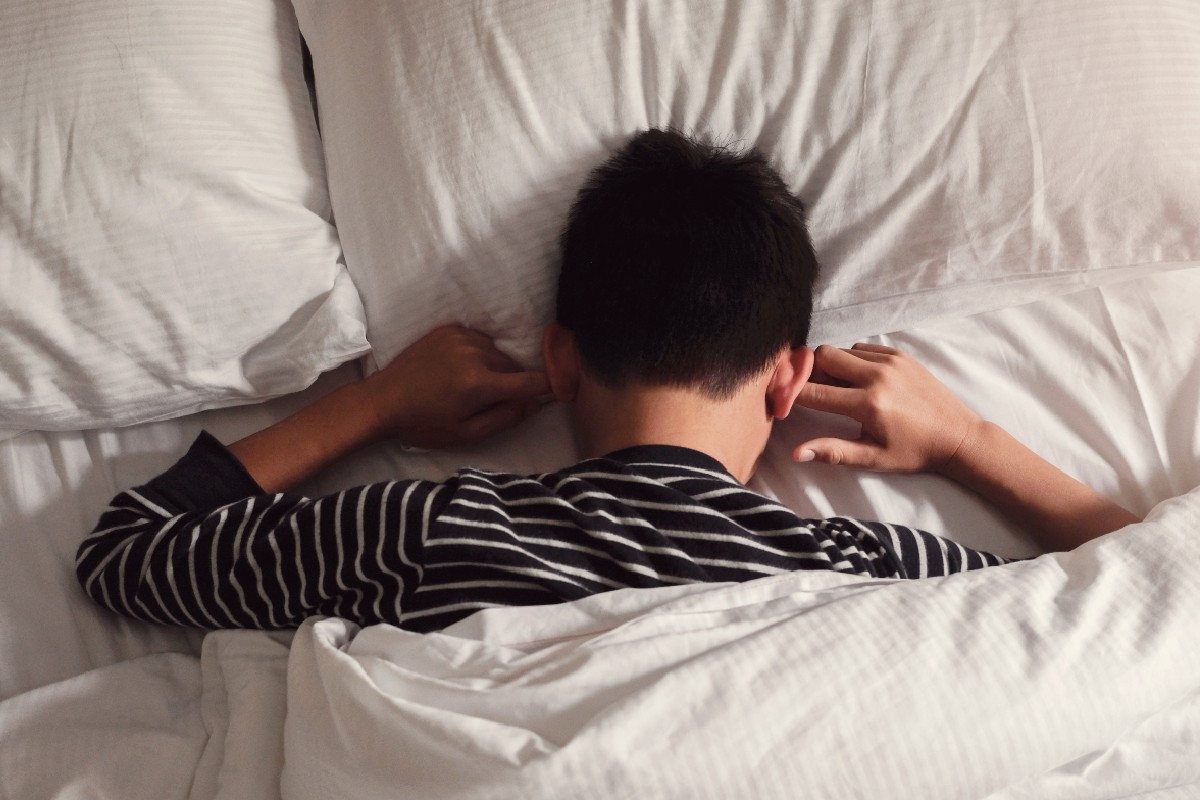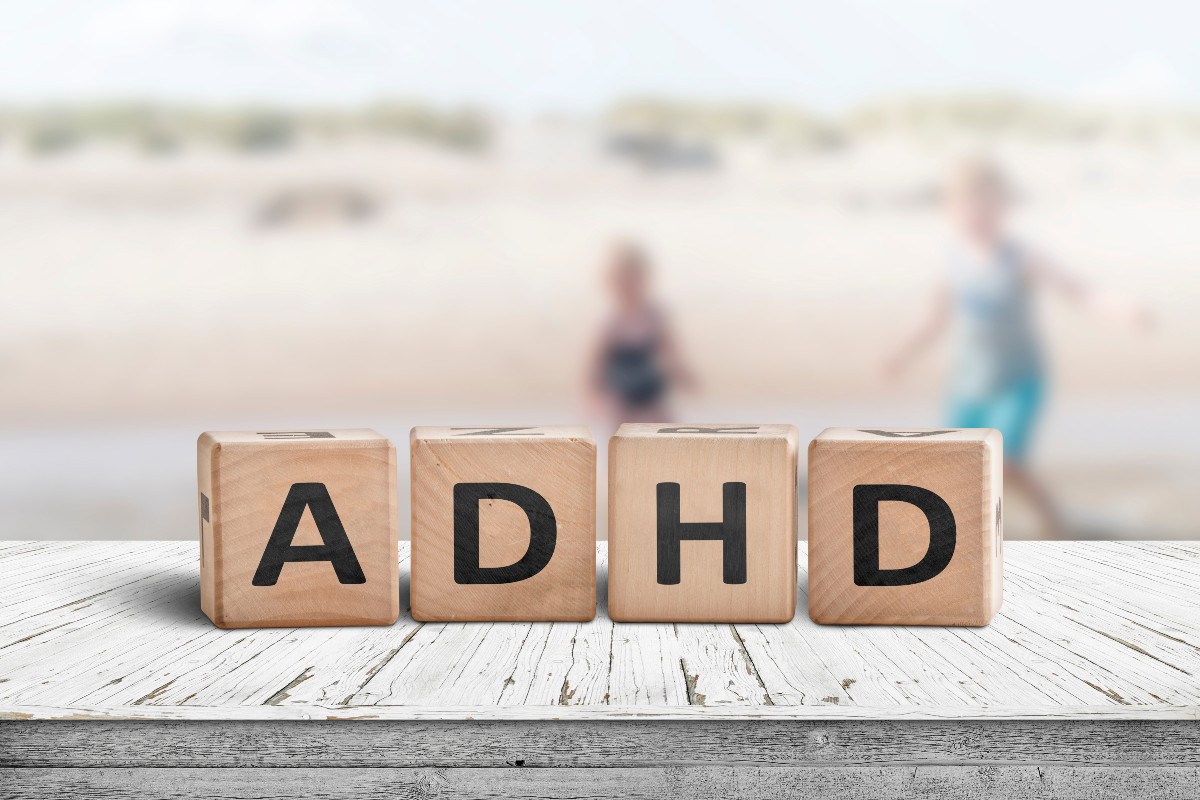
ADHD and Sleep
Is ADHD linked to poor sleep?
Symptoms of ADHD include impulsive behaviours, disorganisation, poor time management skills, difficulty focusing, daydreaming, forgetfulness, daytime fatigue and restlessness. Children may be impatient with others, act without thinking, and sometimes have intense emotional reactions. Both children and adults with ADHD may be unable to sit still, especially in quiet surroundings. This can, of course, cause problems when it comes to sleep..
While sleep problems are not part of the diagnostic criteria, it is widely recognised that sleep disturbances are more common in both adults and children with ADHD. Estimates vary, but as many as 50-70% of those with an ADHD diagnosis will also report some difficulty sleeping, compared with around 20-30% in the general population. This might include difficulty falling asleep, staying asleep, sleep apnoea or restless legs. ADHD is often characterised by a difficulty falling asleep, and more restless sleep during the night (Ziegler et al 2021).
Unfortunately, lack of sleep can make many of the symptoms of ADHD worse, such as inability to focus, impulsivity, emotional dysregulation and restlessness (Lazzaro et al 2024)..
Positively, it’s important to remember that not everyone with ADHD has difficulty sleeping - it is not inevitable, and sleep disturbances are always treatable.
Why is ADHD linked to poor sleep?
There is no single explanation for why those with ADHD are more likely to experience poor sleep, but some common challenges include:
- A “night owl” chronotype
Do you struggle to fall asleep before midnight, or later? Do you frequently sleep through your morning alarm? Do you find it very difficult to wake up before 9, or 10am? Teenagers often experience a delayed body clock, or ‘night owl’ chronotype. This sleep-wake pattern can be more common in adolescents with ADHD, and often persists into adulthood (Bondopadhyay et al 2021).
- A mind that “won’t switch off”
Restlessness is a defining feature of ADHD, both physically, and mentally. Many people describe a racing mind that refuses to settle. This suggests a state of ‘hyperarousal’, also common in insomnia disorder. This means that the body is stuck in a ‘fight or flight’ state, as if it is under threat, which makes it difficult to relax and clear the mind for sleep. ADHD is often associated with mental health disorders such as anxiety, which can exacerbate sleep problems (Fadeuilhe et al 2021).
- A lack of routine
While those with ADHD and autism may thrive on routines, many adults with ADHD find it very difficult to stick to a set schedule. Both adults and children can become very absorbed in specific activities they enjoy, such as computer games, and can easily lose track of time. Regular routines can enhance the quality of sleep, whereas haphazard routines disrupt the body clock, and lead to more fragmented sleep.
- Sensory overload
People with ADHD are more likely to experience sensory overload, which is a feeling of anxiety that occurs when there's too much sensory input. This might be due to too much noise, too many people, aromas or bright lights. People with ADHD may react to sensory overload by screaming, crying, kicking, or hiding - pushing them away from a sleep-ready state.
- Stimulant medication
For some types of ADHD, stimulant medication can have a counterintuitive, calming effect on restlessness. This may actually have beneficial effects on sleep. For other people, taking a stimulant before bedtime could make it harder to wind down. This means it’s important to discuss sleep issues with your doctor or healthcare team, and consider the type, dose and timing of medication. Caffeine is also a stimulant which can interfere with sleep. While many people find it useful for combatting mental fogginess during the day, try to avoid caffeine 9 hours before bed.
How can ADHDers sleep well?
The principles of good sleep habits below are universal, whether or not you have ADHD, but these approaches could be especially helpful for a highly active brain.

1. Consistent wake up time
As discussed above, consistent sleep-wake timings can improve your sleep quality, and make it easier to get out of bed in the morning. Work out a wake up time that will work for you at least 5, and preferably 7 days a week. Try not to deviate from this by more than 30 minutes. If you’re a shift worker, try to minimise disruption. Enlist help from other people in your household to help you wake up in the morning. Set an alarm an hour before bed, as a reminder to switch off and unwind.
2. Screen-free wind down time
Although it might feel as though using your phone or laptop before bed is relaxing, it is very easy to get distracted if you’re online late at night. If you have ADHD, you could be more susceptible to displacing sleep time with scrolling. In the last hour before bed, try to avoid screens entirely - plan out a brief sequence of activities to prepare for bed which will calm you down, and which you enjoy. This could be having a warm bath or shower, listening to calming music, brushing your teeth, and getting into bed. Many people find that writing a to do list for the following day can help to ease a busy mind, and make it easier to fall asleep.
3. Boost morning and daytime light exposure
Bright light sends a wake up signal to the brain. In ADHD, some people are especially sensitive to light as a stimulus. Everyone will benefit from getting outside and getting exposure to natural light during the day. If you struggle with getting out of bed in the morning, you might want to invest in a wake up light, or SAD (Seasonal Affective Disorder) light, which mimics the natural light intensity of the sun. This can help to reset your body clock in the morning, and - if used consistently at the same time - help you to naturally feel sleepy 16 or so hours later.
4. Limit evening exposure to light, and sensory stimulation
In the evening, the brain starts to produce melatonin about 2 hours before your normal bed time, so try to avoid exposure to bright light after this time. Melatonin is the hormone which prepares the brain and body for a restful sleep. If you’re vulnerable to sensory overload, actively try and avoid too much sensory stimulus at least 2 hours before bed. In the festive party season, that might mean wearing ear plugs to dull the noise, or noise cancelling headphones, or simply making a strategic exit in good time before bed. Once you’re in bed, try an eye mask to minimise light exposure. Some people with ADHD also find a weighted blanket calming for sleep (Lonn et al 2024, Zurman & Walsh 2021).
5. Naturally build up an appetite for sleep
Everyone can benefit from being physically active during the day, and adults and children with ADHD are no exception. The key thing is to find a type of movement that you enjoy, so that it doesn’t feel like a chore. Many people find that expending physical energy can help to calm the symptoms of ADHD, and help with focus, and improved mood. Crucially, exercise does not have to be intensive to aid sleep. Many people find that gentle mind-body exercise such as yoga, pilates and tai chi can be helpful for sleep.
If you feel as though you’re following positive sleep habits, but you’re still struggling with sleep, speak to your doctor. There are many different ways of improving sleep, and you just need to find what works for you. It may be that a prescription sleeping aid, such as melatonin, for example, could help to reset your body clock (Checa-Ros et al 2023), but it’s important to discuss your unique needs with your medical team. I’d recommend keeping a sleep diary for a week or two, to try and spot patterns, and see what sets you personally up for a good night’s sleep.

Dr Sophie Bostock - Dr Sophie Bostock
Sophie brings a wealth of expertise to the role having spent the last six years researching and championing the importance of sleep science in NHS and corporate settings. Sophie was responsible for improving access to the award-winning digital sleep improvement programme, Sleepio, as an NHS Innovation Accelerator Fellow. She has delivered hundreds of talks, including for TEDx and Talks@Google, and regularly features as a media sleep expert.